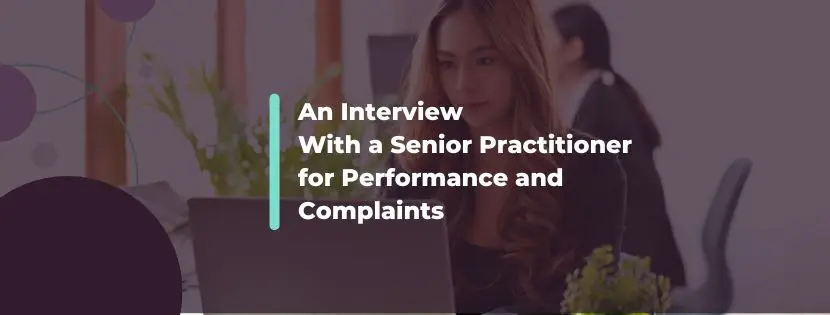One-to-One Support in Action: Interview With a SEND Teaching Assistant
04 Nov, 20251-2 minutes
In this blog, you will learn:
- The typical workday of a SEND Teaching Assistant and carer.
- The importance of providing one-to-one support in the classroom to students with varying needs.
- How to ensure pupils feel safe and supported in the classroom.
- How to find and apply for the best SEND Teaching Assistant jobs.
Providing the best support for students with SEND can be challenging, especially when it comes to creating tailored learning experiences that meet each child’s unique needs. There are various learning strategies that can ensure every learner has the opportunity to thrive, from pastoral support and the use of assistive technology to one-to-one support.
According to the Pearson School Report, 52% of Teachers used one-to-one support in their last lesson. It is a practice increasingly used by teaching staff, including Teaching Assistants, to support pupils with SEND in the classroom.
We spoke with a SEND Teaching Assistant who works on a one-to-one basis with pupils of varying needs to find out how she supports pupils with SEND in the mainstream classroom.
In this interview, you’ll discover how this SEND Teaching Assistant goes above and beyond to ensure her pupils feel safe and supported throughout their education.
Describe the main responsibilities of your role as a SEND Teaching Assistant
My role consists of communicating with peers, children and outside agencies whether that be face-to-face, over the phone, or via email.
I discuss children's needs with Teachers to inform future planning and prepare learning materials for classes and small intervention groups. With this, I adapt teaching plans and support children according to their needs, differentiating for individuals and small groups. I also support the Teacher in the classroom as well as my peers.
I look after children's physical, social and emotional welfare by creating and maintaining a safe learning environment. I also keep records regarding SEND children, monitor behaviour and seek advice from SENCOs with regard to any SEN needs throughout the school.
Part of my role also involves working with all staff in the school and collaborating with external agencies. I work with Speech and Language Therapists (SALT), Physiotherapists, Occupational Therapists, social care teams and behavioural support teams.
What does a typical work day look like for you?
I leave the house at around half past 7 and on my way to work, I pick up one of our pupils who has SEND. I take her to school (the same school I work at) as I also work as her carer. I help her get into the car including her wheelchair and drive to school/work.
Once I get to school, I take my pupil to her year 6 class and then head to the year 5 class I am working in that morning. En route, I report any issues, instructions and share any information specific to the children we work with. In class, I have morning readers, which is one-to-one reading for children who need to read regularly, struggle with reading or need to be in school early.
At 8:45am, the school day begins, and depending on the day, this starts with registration, attendance and lunch options, followed by either assembly, singing or the start of the day's lessons.
At 9am, I teach a small group maths as they need extra support and longer sessions to practise and retain information. I also work one-to-one with a pupil with moderate learning difficulties, ADHD, and dyslexia, who requires ongoing emotional and speech therapy support.
During break time, I support my one-to-one pupil as he struggles to socialise with his peers. After break, I teach a small group English and then I have 2 comprehension groups that run parallel to each other, working on guided or independent activities.
During lunchtime, I provide one-to-one support helping a pupil with calm play and socialising activities. After my own lunch, I work in year 6 with a pupil with cerebral palsy providing educational and physical support, moving to and from equipment and group support. I also work in a phonics group with another member of staff.
At 1:30pm, Monday to Wednesday, I work with 2 children to support reading and comprehension activities. Then I’m back in class to support history, geography, RE, PSHE, art, computing and PE.
At 2:30pm, I work with one of our pupils who has cerebral palsy, supporting her through physiotherapy exercises I’ve been trained to help with. This includes a mix of independent and guided stretches to keep her muscles active and her joints flexible. When needed, I help her complete full stretches to maintain mobility in her legs and arms. She also carries out breathing exercises and practices sit-to-stand movements as part of her routine.
At the end of the day, I take my student home before returning to school where I complete my 2-hour cleaning job. I finish work for the day at 5.30pm!
How do you keep up to date with changes in the SEND industry?
I keep up to date by undertaking training where necessary, following the ethos of the school and learning from good practice. I support school improvement and find that staff meetings are valuable tools to stay updated, check policies regularly and work closely with SENCOs and senior leaders.
I also work closely with the Teacher to inform her plans as the children progress. We adapt to their needs by planning next steps and arranging extra resources.
What is your favourite aspect of your role as a SEND Teaching Assistant?
My favourite aspect of my role as a SEND Teaching Assistant is that I get to be a child's cheerleader. I have worked in the role for over 10 years and while my job is difficult, stressful and at times heart-wrenching, I don't think I could find a more rewarding job that keeps my heart and soul happy.
I get to shout about the achievements that the children make each and every day. The children I work with may have a specific need or a physical disability, but I get to encourage them every day and cheer for their future.
How have things changed or progressed in the SEND sector since the start of your career? What changes would you like to see to better support the needs of children and young people with SEND?
Extra support from outside agencies has improved during the time that I have been a SEND Teaching Assistant. There are now regular visits from Physiotherapists, Occupational Therapists, behaviour support and support into mainstream schools from SEN specialists.
I would like to see better communication between schools, training opportunities for staff who work directly with SEN children and more support from SEN schools to advise on mainstream practices.
What's the most valuable lesson you have learned in your career?
Within the school environment, I have learned that you must always lean on and support your peers because you need each other to work to the best of your abilities. You are stronger when you are working as a cohesive team.
It’s also important to remember that no day and no pupil are the same, so always adapt your approach to suit the needs of the child. Lastly, always be consistent with your approach to children's needs. They need stability, they need grounding and most of all, they need support.
What advice would you give to anyone considering a career in SEND?
It's not easy and it's not for the faint-hearted, but if you would like a job where you get to be a positive influence on a child, support them through their education, and inspire them to be anything they want to be, then do it.
SCG School Insights Report 2025
As specialists in education and SEND recruitment, we work closely with primary, secondary, and SEND schools throughout the UK and are mindful of the challenges that schools and teaching staff are currently facing.
In the School Insights Report 2025, we explore pupil experience and outcomes, key developments impacting the education sector, staffing and workforce trends, and the state of funding and resources in education. Read the SCG School Insights Report 2025 here.
SEND Teaching Assistant jobs
If you’re searching for your next SEND Teaching Assistant job, why not take a look at the latest vacancies, or simply upload your CV to be notified when a relevant position becomes available.
Recruit SEND Teaching Assistants
As a specialist SEND recruitment agency, we support mainstream and SEND schools with their temporary, permanent and temp-perm staffing needs.
We currently work with hundreds of schools and have exclusive access to some of the best SEND Teachers and SEND Teaching Assistants in the North West.
If you’re struggling to fill a teaching vacancy, why not get in touch with one of our team to see how we can help?
- Primary schools - Jimmy Callagher
- Secondary schools - Liam Jones
- SEND schools - Jamie Heath
Share your experience
Every individual brings a unique set of experiences, thoughts, and insights to the table. We believe in giving a voice to a community of professionals to inspire positive change and champion reform in the education sector.
If you work in the education sector and would like to share your own personal and professional experiences, we’d love to hear from you. Perhaps you have a different perspective, could offer a fresh angle, or want to challenge assumptions.
Simply reach out to our Head of Content, Nicole Sherwood, to discuss a collaboration which makes your voice count.
Meet Jamie Heath
Who is Spencer Clarke Group?
Established in 2017, we’re an award winning and progressive recruitment agency based in the heart of the North West. Our reputation is built on trust, expertise and an unwavering commitment to exceed expectations.
In 2025, Spencer Clarke Group was awarded Best Public/Third Sector Recruitment Agency and Best Temporary Recruitment Agency at the Recruiter Awards. In 2024, Spencer Clarke Group was also named Recruitment Agency of the Year.





